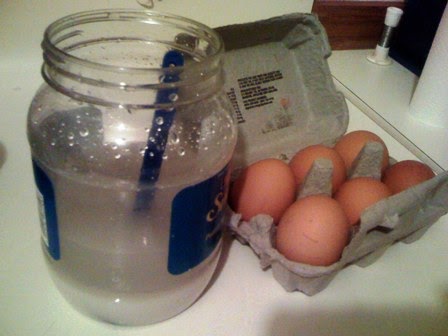
Preserving food without modern conveniences like refrigeration is a valuable skill, especially when it comes to items as perishable as eggs. If you’ve ever wondered how to keep raw eggs fresh for up to a year without a fridge, a traditional method involving salt may be the answer. This method is not only practical but also straightforward, allowing you to stock up on eggs when they’re plentiful and keep them edible long past their usual expiration date.
Why Use Salt for Preserving Eggs?
Salt is a natural preservative that has been used for centuries to cure meats and preserve various foods. It works by drawing moisture out of bacteria’s cells, dehydrating them and preventing their growth. When used to preserve eggs, salt creates a barrier that keeps bacteria at bay, significantly extending the eggs’ shelf life.
Materials Needed:
-
Fresh eggs (make sure they are clean and have no cracks)
-
Non-iodized salt (iodized salt can taint the flavor of the eggs)
-
A large container with a lid, preferably food-grade plastic or glass
Instructions:
1. Prepare the Container:
-
Choose a clean, dry container large enough to hold the number of eggs you wish to preserve. Ensure the container can be sealed or covered to prevent contaminants.
2. Layer the Salt and Eggs:
-
Pour a layer of salt about one inch thick into the bottom of the container.
-
Place the eggs gently on top of the salt layer. It’s crucial that the eggs do not touch each other or the sides of the container to prevent breakage and ensure each egg is fully surrounded by salt.
-
Completely cover the eggs with another layer of salt. Repeat the layering process until all eggs are covered or the container is full, ensuring the topmost layer is salt.
3. Seal and Store the Container:
-
Once all your eggs are snugly bedded in salt, seal the container with a lid. Store it in a cool, dry place that is consistent in temperature. A cellar, pantry, or a storage room away from direct sunlight is ideal.
4. Using the Preserved Eggs:
-
When you need to use an egg, remove it from the salt, brush off any excess with a dry, clean brush, and wash the egg under cool running water. The egg should be used immediately after washing.
Conclusion:
Using salt to preserve eggs is a tried and tested method that can save you from the worry of spoilage, particularly if you’re dealing with surplus eggs or lack refrigeration options. This technique not only extends the eggs’ shelf life but also ensures you have a steady supply of this versatile ingredient throughout the year. It’s a practical, cost-effective way to make the most of your resources and enjoy the nutritional benefits of eggs even without modern conveniences.



